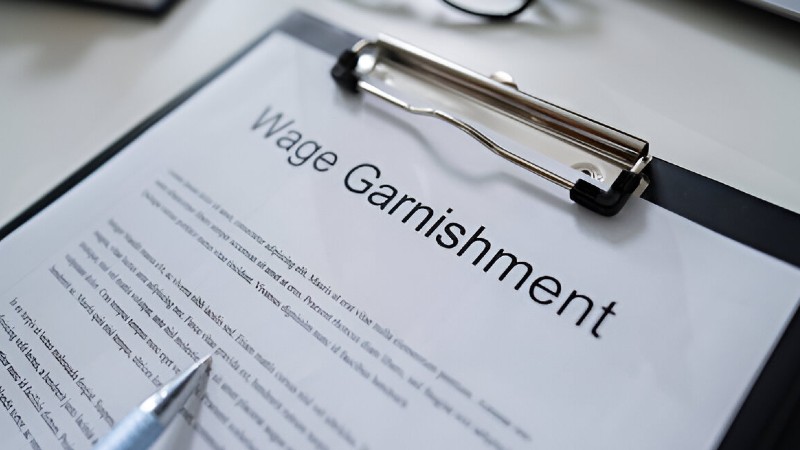Wage garnishment can have a profound impact on your financial stability, especially if you are already struggling with debt. For residents of Clearwater, it is natural to wonder about their rights when faced with the possibility of wage garnishment. The good news is that Florida law includes several protections that may limit or prevent garnishment in certain instances.
If you have received a notice of wage garnishment or fear that one may be issued against you, speaking with a knowledgeable bankruptcy lawyer in Clearwater can help you understand your rights and determine the best course of action.
What Is Wage Garnishment?
Wage garnishment is a legal process that allows a creditor to collect a portion of your wages to repay a debt. Once a court enters a judgment, the creditor can obtain a writ of garnishment and direct your employer to withhold a percentage of your paycheck. The withheld funds are then sent to the creditor until the debt is paid or other legal action is taken.
While federal law imposes certain limits on wage garnishment, individual states, such as Florida, have their own rules and exemptions that may offer additional protection.
Florida’s Head of Household Exemption
One of the most significant protections under Florida law is the Head of Household exemption. This exemption may apply if you provide more than half the financial support for a dependent, such as a child or spouse. If you qualify as a Head of Household, your wages are generally exempt from garnishment, provided you do not waive this right in writing.
To claim this exemption, you must file an affidavit with the court. This document states that you meet the criteria for Head of Household status and should be protected from garnishment. If the exemption is approved, your wages cannot be garnished, even if a judgment has already been issued against you.
Limits on the Amount That Can Be Garnished
In cases where garnishment is allowed, federal and state law limit the percentage of wages that may be withheld. Under federal law, a creditor may garnish the lesser of:
- 25 percent of your disposable earnings (earnings after legally required deductions), or
- The amount by which your disposable earnings exceed 30 times the federal minimum wage.
Florida follows these federal guidelines, meaning that a portion of your income may still be protected even if you are not the Head of Household.
Some types of debts, such as child support, spousal support, and certain tax debts, may be subject to higher garnishment limits. In these cases, federal law allows up to 50 or 60 percent of wages to be garnished, depending on the circumstances.
Exemptions for Low-Income Earners
Florida law also provides protections for low-income earners. If your disposable income is less than $750 per week and you qualify as a Head of Household, your wages may not be garnished at all. Even if you do not meet the Head of Household criteria, low income may still reduce the amount available for garnishment or support a claim for exemption.
How Bankruptcy May Stop Wage Garnishment
If wage garnishment is already in place or about to begin, filing for bankruptcy may stop the process. When you file for Chapter 7 or Chapter 13 bankruptcy, an automatic stay is issued by the court. This temporarily suspends most collection activities, including wage garnishment.
In some cases, bankruptcy may also allow for the recovery of wages that were garnished shortly before the filing. This can provide a degree of financial relief and help individuals regain control of their income.
However, not all garnishments are stopped by bankruptcy. For example, child support obligations typically remain in effect. A thorough review of your specific debts and circumstances is necessary to determine the protections that bankruptcy can offer.
Taking Action to Protect Your Rights
If you receive notice of a wage garnishment order, it is important to respond quickly. Ignoring the issue will not stop the garnishment, and your employer is legally required to comply once the order is issued. Filing the appropriate exemptions, negotiating with creditors, or considering bankruptcy may help reduce or eliminate garnishment.
Legal counsel can help you evaluate your options, file the necessary paperwork, and represent your interests in court if needed. The sooner you act, the more options may be available to you.
Residents of Clearwater facing wage garnishment are not without legal protections. Florida law offers exemptions and limits that can shield part or all of your income, particularly if you are supporting dependents or earning a lower wage. Understanding these rights is the first step toward financial recovery.
For guidance tailored to your situation, contact Weller Legal Group, a trusted bankruptcy lawyer serving Clearwater and surrounding areas. With extensive experience in Florida law, he can help you navigate the wage garnishment process and explore your legal options.
Enjoyed this? Share this post with fellow fans and influencers, and be sure to check back regularly for the latest updates, insights, and news on all things simpcity!
